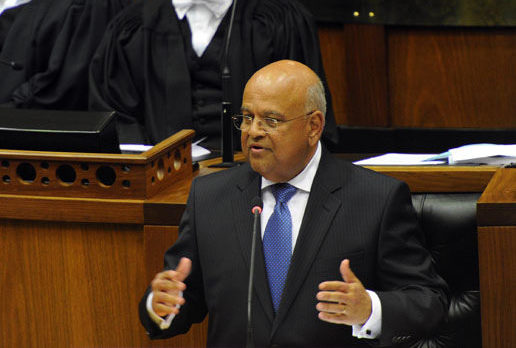
Minister of Finance Pravin Gordhan, addressing Parliament during the National Budget Speech in February.
This year’s budget really drove a key message of widespread transformation. Whilst this also spoke to inclusionary growth and market share, it specifically brought attention to transformation in our cities. Until recently, budget strategies were less preoccupied with the spatial legacy of apartheid. However, there seems to be a concentrated drive of late to address the fragmented configuration of our cities and the spatial inequalities that they proliferate.
“…spatial transformation is a massive challenge involving land acquisition and development, infrastructure and transport services, and industrial and enterprise support. Much of this depends on collaboration between government and the private sector” Minister of Finance, National Budget Speech 2017
The above highlights many key progressions in recent budget plans, namely: the importance of transformation, the role that cities play in addressing issues relating to transformation and sustainability, the need to integrate development initiatives, and the importance of private sector for accelerating investment and collaborative partnerships.
A key facet of the governments drive to accelerate transformation is based on harnessing urban development to address development issues. Last month’s budget speech was very clear on its objectives to accelerated integrated urban development across South Africa. According to the Minister of Finance there are already a number of: “integrated urban development projects that will lead the way in reshaping our cities…”
The above highlights an important shift away from focussing on upgrading informal settlements but instead placing emphasis on incorporating low income areas into the urban core. This is to be done through integrated, high density development that relies heavily on partnerships with private sector organisations.
This leads into the next key motive evident in budgetary strategies over the past few years; including private sector actors in infrastructural and urban development agendas. The importance of forming collaborative coalitions with private sector in driving development in South Africa is becoming increasingly clear. These private sector actors have expanded out of providing financial support for large-scale infrastructural projects to becoming key stakeholders in the development of our cities. Whilst this represents a positive shift in making sure the collaborative development programmes are formulated and executed, it presents a number of challenges, particularly from an implementation perspective.
Notably, the number of decision-making processes required with a partnership between state, private sector, and civil society increases infinitely compared to more traditional government models. This highlights a need to build capacity to engage, and specifically, to understand “how” development works. Furthermore, private sector need to become better acquainted with the frameworks and the political, legal and institutional context in which government has to operate to deliver on its budgetary commitments.
To this end it is critical for the successful implementation of integrated urban development to garner a better understanding, by all parties, the imperatives and constraints of the other. This is necessary to enhance the engagement that needs to occur if more productive, efficient, sustainable, and equitable cities are to be created.
Government is increasingly viewing national development through the lens of our cities. Whilst the development of cities offer a number of challenges, namely: addressing historical spatial and social inequalities; and forging effective partnerships with non-state actors, they are critical for equitable and just development in South Africa. Harnessing the opportunities inherent to the urban environment will be vital in overcoming the challenges South Africa faces.
